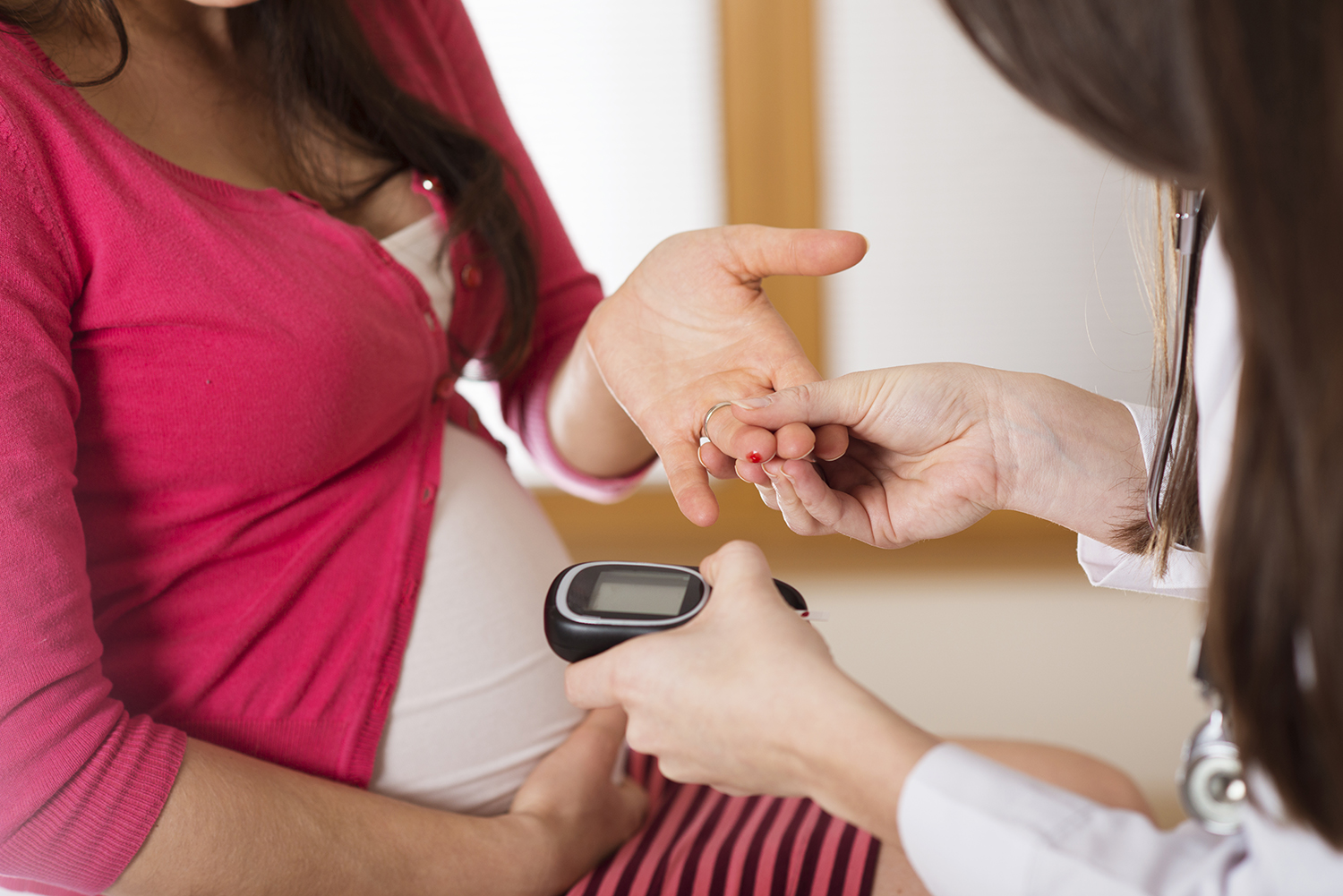
Diabetes is a disease that occurs when your blood sugar levels are too high. It can occur before, during or after pregnancy and may cause a number of health problems for you and your developing baby.
Seven out of 100 women will develop gestational diabetes during their pregnancy. Diabetes that occurs during pregnancy is called gestational diabetes and typically resolves itself soon after delivery. However, this leads to an increased risk for developing type 2 diabetes later in life.
Ten Tips for Managing Diabetes During Pregnancy
To help keep you and your baby healthy, it’s important to keep your blood sugar as close to normal as possible—before, during and after pregnancy. Here are useful tips for managing diabetes throughout your pregnancy:
- Eat smaller meals, more often
Eat three meals and 2-3 healthy snacks every day to help keep your blood sugar levels stable. Each meal should have a selection of complex carbohydrates, leafy green vegetables and fiber. It’s also important to limit saturated fats and avoid food and drinks that contain a lot of sugar.
- Don’t skip breakfast
Pregnancy hormones are often strongest in the morning, which can cause your blood sugar levels to rise even before you eat. A breakfast of whole grains and protein is usually best.
- Eat more fiber
Whole grain bread, rice, whole oats, barley or any other whole grains high in fiber will help keep blood sugar levels lower than refined grains (e.g., white bread and white rice). Other high fiber food options include split peas, lentils and beans.
- Measure starchy foods
Starchy foods are important, but they may increase your blood sugar levels if eaten in excess. Measure your starchy foods at mealtime to avoid complications. A reasonable serving size is about one cup of cooked rice, grain, noodles or potatoes, or two pieces of bread per meal.
- Measure fruit portions
Fruit is nutritious, but it contains natural sugars that can elevate blood sugar levels. Eat only one small portion of fruit at mealtime like one cup of mixed fruit. It’s also important to avoid fruit that has been canned in syrup or fruit juice.
- Limit milk intake
Milk is healthy, a great source of calcium and good for your baby. But too much at one time can lead to high blood sugar levels.
- Avoid sugar
Do not add any sugar, honey or syrup to your foods.
- Stay active
Engage in moderate physical activity that raises your heart rate each day. Be sure to check with your doctor before beginning this or any new exercise routine.
- Lose excess weight before pregnancy
Getting to and maintaining a healthy weight before pregnancy is especially important if you have diabetes or a family history of gestational diabetes.
- Read nutrition labels closely
Though certain foods may advertise that they’re sugar-free, sugar alcohols may be used instead. Check the food labels total grams of carbohydrates.
If you’d like to learn more about managing your diabetes during pregnancy—or need help managing your diabetes before you get pregnant—the skilled physicians at Pomona Valley Health Centers can help. Call 909-630-7829 to schedule an appointment.





